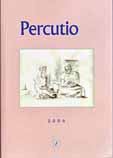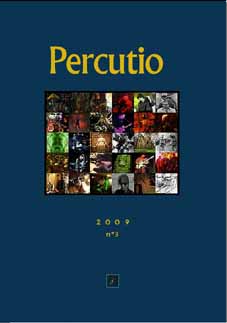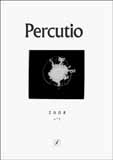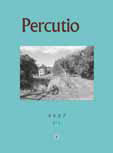Still reaching behind
her to frig Henry, the girl let down
her riding jeans.
"This
is how you like to see girls, isn't
it, Henry?"
Alice
seated herself -- the straw
seat of the chair pricking her
bottom -- resolved, however,
to brazen out her nakedness,
and wrote with a trembling hand:
"I
pea'd like a mare before my
uncle; I pea'd like a mare before
my uncle; I pea'd like a mare
before my uncle."
Miss
Jolly took three small balls,
the size of blackbirds' eggs,
moistened them, and took them
one by one into her mouth.
Then, bowing her head, she
slid them on her tongue high
up into Sue's cunt.
The first
and third of these extracts come from
a (possibly fraudulent) piece of Edwardian
erotica: The Amorous Memoirs of Capt.
Charles De Vane, published by Grove
Press in 1982. The second one comes from
one of the numerous appendices to Suburban
Souls: The Erotic Psychology of a Man
and a Maid, a bona fide piece of fin-de-siècle
porn.
I printed
them, together with a bunch of other quotations
(genuine and spurious) in a story/text
called "The Yellow Room," included
in my collection Monkey Miss Her Now
(Danger Publishing, 2004).
I guess
there are two obvious reasons for pasting
large chunks of other people's work (acknowledged
or unacknowledged) into one's own:
- because it's very good,
and you don't think you could do the
same thing as well.
- because it's very bad,
but you want to draw attention to certain
inherent implications.
The first
motive comes uncomfortably close to plagiarism,
so I tend never to include anything I
consider really admirable writing unless
it's laid out unequivocally as a quote.
Disposable,
throwaway writing -- pornography, advertising
copy, self-help manuals, official propaganda
-- is a different story. These are the
types of writing I most enjoy sampling
from. There's a wonderful directness and
lack of pretentiousness about really clumsy
writing with definite designs on you.
Poor Sue, for example, forced to put up
with the demonic Miss Jolly forcing slippery
beads high up her cunt.
It's a
masturbation text, of course, so I coupled
it with some grim extracts on self-abuse
from a book called Everything a Teenage
Girl Should Know, compiled by a puritanical
male doctor sometime in the 1970s. His
book is composed in the form of a Platonic
dialogue:.
Let's
start with masturbation.
.
This
simply means the act of achieving
sensuous gratification from artificial
stimulation of the sex organs.
Is
this a strictly male affair, or does
it involve females as well?
The
part of major sensitivity in the female
is a little organ called the clitoris
. . . .. It can be stimulated by hand
to produce an orgasm . . . .
Now
for the King-sized question. Is this
form of activity harmful in any way?
Older
views claimed serious mental and physical
disasters awaited anyone practising
the habit. The current thought is
to entirely debunk the older authors
and critics, and entirely sweep away
their depressing beliefs. Nevertheless,
a great many thinking persons today
still do not condone the practice.
The fact remains, it is unnatural.
This cannot be denied.
"The
fact remains, it is unnatural. This cannot
be denied . . . "
Yes, it
bloody well can be denied . . .
In what sense exactly is it "unnatural"?
It's not
so easy to come up with stuff like that.
If you invented it yourself, readers would
think you were exaggerating -- that nobody
ever talked that way in reality. Personally,
I see the porn extracts and the health
manual as showing different signs of the
same coin. The anonymous authors of Suburban
Souls and The Memoirs of Capt.
Charles de Vane appear to me to share
the good Doctor's view of the inherent
wickedness of extra-marital sex -- the
only difference is that they think
that gives it added spice, whereas he
wants to shut it down entirely.
I wanted
my readers to be struck by the overwhelming
strangeness of these views -- I wanted
this collection of ravings about sex from
random directions to make them question
more deeply their own views on the matter.
The story
concludes with a passage from the ancient
Sumerian poem "Ishtar's Descent to
the Underworld":
Since
Ishtar went to hell
the
bull won't mount the cow
the
ass won't service the jenny
the
man won't love the virgin
the
man lies in his own room
the
virgin on her side
The beautiful
desolation of these lines were (I believe)
intended by the poet to show the spiritual
wasteland we stumble into when we tamper
with the divine forces of sex, desire,
generation.
My story
had a similar intention. I structured
it deliberately like a bout of masturbation:
going, going, going . . . gone
-- and on into the aftermath: weariness,
disappointment . . . .
He
reminds me of the character in the
Hitch-Hiker's Guide series
who talks to a table for two weeks
just to see what it's like.
--
NZ Poetry Society Newsletter
So said
one of the reviewers of my poetry collection
Chantal's Book (HeadworX, 2002).
To be fair, most of the other reviewers
were more positive, praising the "magpie
eclecticism" with which it had been
compiled. One went so far as to say, "I
even like the strange bits." The
bad stuff is easier to believe, though,
as Julia Roberts remarked in Pretty
Woman.
Chantal's
Book was a book of love poems, addressed
to a very real person, and charting the
ups and downs of our relationship. My
object was maximum honesty in order to
achieve maximum applicability -- to suggest
the possibility of a chime with the reader's
own experience.
The book
is both ordered and disordered.
I like the clarity of binary oppositions,
so each page-spread tended to have contrasting
texts -- prose / verse; quotation / original
-- displayed across them. The materials
I was sampling from were certainly eclectic:
travel-books, street-signs, email, letters,
advertisements, graffiti . . . The "literary
magpie" comparison seems a perfectly
valid one. But then that's how my mind
works. Maybe other people have a more
linear consciousness, but I don't.
Monkey
Miss Her Now (my English-language
version of Baudelaire's Mon coeur mis
à nu) has been found rather
baffling and difficult by some readers.
Chantal's Book, by contrast, has
had a pretty good reception -- I imagine
because of the more accessible subject-matter.
The "talking to a table for two weeks"
imputation did, however, hover around
from the more literal-minded. Some people
see the use of multiple sources as somehow
cheating -- as an easy way out of the
difficulties of composing literary works.
The ghost of William Burroughs and his
cut-ups (Nova Express, The Ticket
that Exploded) bedevils any suggestion
of spontaneous text generation.
I should
specify that spontaneous text generation
doesn't, in fact, interest me very much.
There are plenty of people who like to
take the third line of every second volume
of the encyclopaedia, or a Fibonacci sequence
of the letters on the last page of the
telephone directory. OuLiPo games. All
power to them. But I'm not one of them.
I look
for materials to sample the same way I
look for ideas to use in what I write.
In both cases, I want what I present to
be arresting to readers, to make them
(ideally) see things in a slightly unaccustomed
way, if only for a short time. The intention
is always the same. The means constantly
shift and evolve.
Originality
per se doesn't concern me -- only
the effects I'd like to achieve.
Sampling
has been a very useful tool for me because
it surprises -- perhaps I should say irritates
-- people so much. What's more, if readers
expect you to do it, you can fool them
by not doing it at all. Then there's the
added fun of concocting spurious sources
and misquotations. Once they've learned
not to trust a word you say, you can turn
the tables on your audience by turning
out to be scrupulously accurate in the
smallest particulars.
The world
is a very complex and unexpected place,
and writers have to sprint pretty fast
to keep up with it. It's foolish to deny
yourself the pleasure of stealing bits
of throwaway shit and trying to transmute
them into gold.
-- Jack
Ross





.jpg)
%20Ben%20Ou.jpg)
%20Emma%20Smith.jpg)
-E-Portc.jpg)